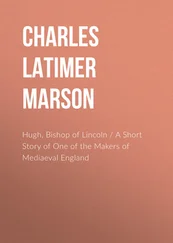Paul Vinogradoff - Villainage in England - Essays in English Mediaeval History
Здесь есть возможность читать онлайн «Paul Vinogradoff - Villainage in England - Essays in English Mediaeval History» — ознакомительный отрывок электронной книги совершенно бесплатно, а после прочтения отрывка купить полную версию. В некоторых случаях можно слушать аудио, скачать через торрент в формате fb2 и присутствует краткое содержание. Жанр: foreign_prose, Юриспруденция, История, foreign_edu, foreign_antique, на английском языке. Описание произведения, (предисловие) а так же отзывы посетителей доступны на портале библиотеки ЛибКат.
- Название:Villainage in England: Essays in English Mediaeval History
- Автор:
- Жанр:
- Год:неизвестен
- ISBN:нет данных
- Рейтинг книги:4 / 5. Голосов: 1
-
Избранное:Добавить в избранное
- Отзывы:
-
Ваша оценка:
- 80
- 1
- 2
- 3
- 4
- 5
Villainage in England: Essays in English Mediaeval History: краткое содержание, описание и аннотация
Предлагаем к чтению аннотацию, описание, краткое содержание или предисловие (зависит от того, что написал сам автор книги «Villainage in England: Essays in English Mediaeval History»). Если вы не нашли необходимую информацию о книге — напишите в комментариях, мы постараемся отыскать её.
Villainage in England: Essays in English Mediaeval History — читать онлайн ознакомительный отрывок
Ниже представлен текст книги, разбитый по страницам. Система сохранения места последней прочитанной страницы, позволяет с удобством читать онлайн бесплатно книгу «Villainage in England: Essays in English Mediaeval History», без необходимости каждый раз заново искать на чём Вы остановились. Поставьте закладку, и сможете в любой момент перейти на страницу, на которой закончили чтение.
Интервал:
Закладка:
Parvum breve de recto.
Bracton says, that in such cases the usual assizes and actions do not lie, and the 'little writ of right close' must be used 'according to the custom of the manor.' The writ is a 'little and a close' one, because it is directed by the king to the bailiffs of the manor and not to the justices or to the sheriff 156 156 Natura Brevium, f. 3 b (ed. Pynson).
.
It does not concern freehold estate, but only land of base though privileged tenure. An action for freehold also may be begun in a manorial court, but in that case the writ will be 'the writ of right patent' and not 'the little writ of right close 157 157 Y.B. H. 49 E. III, pl. 12 (Fitzherbert, Abr. Aunc. Dem. 42, quotes pl. 7 instead of 12 by mistake): Belk(nap) , 'Verite est qe le terre est demandable par le briefe de droit patent en le court le seigniour apres la confirmacion ( sc. par chartre) par ce qe le brief de droit serra commence en le court le seignior, mes apres la confirmacion il ne serra demande en auncien demesne par brief de droit close secundum consuetudinem,' etc.
.'
The exclusion of the tenants from the public courts is a self-evident consequence of their base condition; in fact, pleading ancient demesne in bar of an action is, in legal substance, the same thing as pleading villainage 158 158 Bracton actually calls the plea of ancient demesne an exception of villainage, f. 200: 'Si autem in sokagio villano, sicut de dominico domini Regis, licet servitia certa sunt, obstabit ei exceptio villenagii, quia talis sokmannus liberum tenementum non habet quia tenet nomine alieno.' Cf. Fitzherbert, Abr. Aunc. Dem. 32.
. Of course, an outlet was provided by the manorial writ in this case, and there was no such outlet for villains outside the ancient demesne; but as to the original jurisdiction in common law courts, jurisdiction that is in the first instance, the position was identical. Though legally self-evident, this matter is often specially noticed, and sometimes stress is laid on peculiarities of procedure, such as the inapplicability of the duel and the grand assize 159 159 Bract. Note-book, pl. 652: 'Non debent extra manerium illud placitare quia non possunt [ponere] se in magnam assisam nec defendunt se per duellum.' On the cases when an assize could be taken as to tenements in ancient demesne, see the opinion printed in Horwood's Introduction to Y.B. 21/22 Edw. I, p. xviii.
in land to ancient demesne, peculiarities which, however, are not universally found 160 160 Stoneleigh Reg., f. 76 sqq: 'Item in placito terre possunt partes si voluerint ponere jus terre sue in duello campionum vel per magnam assisam, prout patet in recordo rotuli de anno xlv Regis Henrici inter Walterum H. et Johannem del Hul etc. et inter Galfridum Crulefeld et Willelmum Elisaundre anno xx Regis Edwardi filii Regis Henrici,' etc.
, and which, even if they were universally found, would stand as consequence and not as cause. This may be accounted for by the observation that the legal protection bestowed on this particular class of holdings, notwithstanding its limitations, actually imparted to them something of the nature of freehold, and led to a great confusion of attributes and principles. Indeed, the difficulty of keeping within the lines of privileged 'villainage' is clearly illustrated by the fact that the 'little writ,' with all its restrictions, and quite apart from any contention with the lord, recognises the tenant in ancient demesne as capable of independent action.
Villains, or men holding in villainage, have no writ, either manorial or extra-manorial, for the protection or recovery of their holdings, and the existence of such an action for villain socmen is in itself a limitation of the power of lord and steward, even when they are no parties to the case. And so the distinction between freehold and ancient demesne villainage is narrowed to a distinction of jurisdiction and procedure. This is so much the case that if, by a mere slip as it were, a tenement in ancient demesne has been once recovered by an assize of novel disseisin, the exclusive use of the 'little writ' is broken, and assizes will ever lie hereafter, that is, the tenement can be sued for as 'freehold' in common law courts 161 161 Bract. Note-book, 1973: 'Nota quod si manerium quod solet esse de dominico domini Regis datum fuerit alicui et postea semel capta fuerit assisa noue uel mortis de consuetudine, iterum capiantur assise propter consuetudinem.'
. Surely this could happen only because the tenure in ancient demesne, although a kind of villainage, closely resembled freehold.
The 'little writ' in manors alienated from the Crown.
One has primarily to look for an explanation of these great privileges to manors, which had been granted by the king to private lords. On such lands the 'little writ' lay both when 'villain socmen' were pleading against each other 162 162 Britton, ii, 142.
, and when a socman was opposed to his lord as a plaintiff 163 163 If the lord brings an action against the tenant, ancient demesne is no plea, Viner, Abr., Anc. Dem. G. 4. This was not quite clear however, because ancient demesne is a good plea whenever recovery in the action would make the land frank fee.
. This last eventuality is, of course, the most striking and important one. There were some disputes and some mistakes in practice as to the operation of the rule. The judges were much exercised over the question whether an action was to be allowed against the lord in the king's court. The difficulty was, that the contending parties had different estates in the land, the one being possessed of the customary tenancy in ancient demesne, and the other of the frank fee. There are authoritative fourteenth-century decisions to the effect that, in such an action, the tenant had the option between going to the court at Westminster or to the ancient demesne jurisdiction 164 164 Y.B., M. 41 Edw. III, 22: ' Chold : Si le seigniour disseisie son tenaunt il est en eleccion del tenant de user accion en le court le seigniour ou en le court le roy' (Fitzherbert, Abr. Aunc. Dem. 9). Liber assis. 41 Edw. III, pl. 7, f. 253: ' Wichingham : Si le tenant en auncien demesne fuit disseisi par le seignior en auncien demesne il est a volunte le tenant de porter lassise al comen ley ou en auncien demesne mes e contra si le seignior soit disseisi par le tenant, il ne puit aillours aver son recoverie que en le court le roy.'
.
The main fact remains, that a privileged villain had 'personam standi in judicio' against his lord, and actually could be a plaintiff against him. Court rolls of ancient demesne manors frequently exhibit the curious case of a manorial lord who is summoned to appear, distrained, admitted to plead, and subjected to judgment by his own court 165 165 Stoneleigh Register: 'Item anno regni Regis Eduardi filii Regis Henrici vij Ricardus Peyto tulit breue de recto versus abbatem de Stonle et alios de tenementis in Fynham in curia de Stonle.' There are several instances in the Court Rolls of King's Ripton, Hunts. See App. V.
. And as I said, one looks naturally to such instances of egregious independence, in order to explain the affinity between privileged villainage and freehold. The explanation would be insufficient, however, and this for two simple reasons. The passage of the manor into the hands of a subject only modifies the institution of ancient demesne, but does not constitute it; the 'little writ of right' is by no means framed to suit the exceptional case of a contention between lord and tenant; its object is also to protect the tenants against each other in a way which is out of the question where ordinary villainage is concerned. The two reasons converge, as it were, in the fact that the 'little writ of right' is suable in all ancient demesne manors without exception, that it applies quite as much to those which remain in the crown as to those which have been alienated from it 166 166 Bract. Note-book, 834: 'Preceptum est vicecomiti quod preciperet ballivis manerii Dom. Regis de Haueringes quod recordari facerent in Curia Dom. Regis de H. loquelam que fuit in eadem curia per breue Dom. Regis inter,' etc.: 652 is to the same point. I must say, however, that I do not agree with Mr. Maitland's explanation, vol. ii. p. 501, n. 4: 'John Fitz Geoffrey (the defendant pleading ancient demesne) cannot answer without the King. Tenet nomine alieno. Bract. f. 200. The privileges of tenants in ancient demesne are the King's privileges.' John Fitz Geoffrey is the King's firmarius , and the other defendants vouch him to warranty. After having pleaded to the jurisdiction of the Court he puts in a second plea, 'salvo predicto responso,' namely, that the tenement claimed is encumbered by other and greater services than paying 15 s. to hold freely. This is clearly the farmer's point of view, and as such, he cannot answer without the king. I lay stress on the point because a person pleading ancient demesne, although not holding nomine proprio in strict law, is compelled to answer without the King in the manorial court and by the manorial writ.
. And this leads us to a very important deduction. If the affinity of privileged villainage and freehold is connected with the 'little writ of right' as such, and not merely with a particular application of it, if the little writ of right is framed for all the manors of ancient demesne alike, the affinity of privileged villainage and freehold is to be traced to the general condition of the king's manors in ancient demesne 167 167 I need not say that the 'little writ' did not lie against the King himself. No writs did. Cp. Fleta, p. 4.
.
Интервал:
Закладка:
Похожие книги на «Villainage in England: Essays in English Mediaeval History»
Представляем Вашему вниманию похожие книги на «Villainage in England: Essays in English Mediaeval History» списком для выбора. Мы отобрали схожую по названию и смыслу литературу в надежде предоставить читателям больше вариантов отыскать новые, интересные, ещё непрочитанные произведения.
Обсуждение, отзывы о книге «Villainage in England: Essays in English Mediaeval History» и просто собственные мнения читателей. Оставьте ваши комментарии, напишите, что Вы думаете о произведении, его смысле или главных героях. Укажите что конкретно понравилось, а что нет, и почему Вы так считаете.












